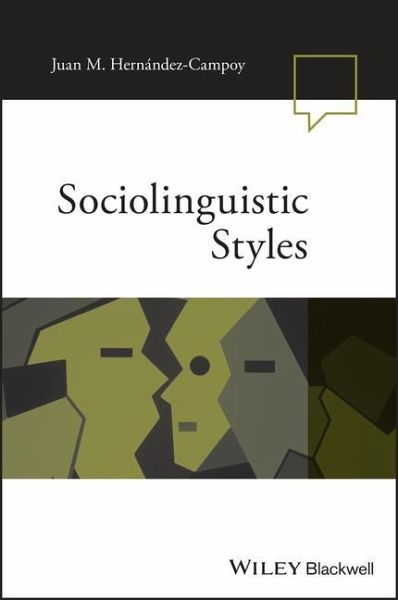
Sociolinguistic Styles
Versandkostenfrei!
Versandfertig in über 4 Wochen
45,99 €
inkl. MwSt.
Weitere Ausgaben:

PAYBACK Punkte
23 °P sammeln!
Language in Society "Surely you have read restaurant reviews that suggest that one might go for the view (or music, or ambience) but stay for the food, with the clear implication that the latter is at least as good if not better than any of the former. This book tempts you to come for the style but will impress you as you stay for the sociolinguistics. You will not be in the least disappointed if you came only for the style, but you will be equally - or, like me, even more - impressed with the view of the field in general that this reading of it through the prism of style gives". Dennis Presto...
Language in Society "Surely you have read restaurant reviews that suggest that one might go for the view (or music, or ambience) but stay for the food, with the clear implication that the latter is at least as good if not better than any of the former. This book tempts you to come for the style but will impress you as you stay for the sociolinguistics. You will not be in the least disappointed if you came only for the style, but you will be equally - or, like me, even more - impressed with the view of the field in general that this reading of it through the prism of style gives". Dennis Preston, Oklahoma State University "Style is now central to sociolinguistic theorization, which makes this comprehensive treatment of the issue in variationist sociolinguistics particularly timely. It includes many case studies, particularly from the author's own work". Allan Bell, Auckland University of Technology Given its omnipresence in language production, style should hold a pivotal position in examinations of the relationship between linguistic elements and extralinguistic factors. Despite this centrality, it has - until recently - been conceived as a mere independent variable rather than as a sociolinguistic resource for the creation and transmission of social meaning, such as identity or ideology projection and rhetorical stance-taking. Sociolinguistic Styles systematically examines the complex phenomenon of style-shifting in sociolinguistics, focusing on its nature and social motivations, as well as on the mechanisms for its usage and its effects. Hernández-Campoy provides an in-depth, up-to-date critical overview of the many different theoretical approaches accounting for stylistic variation, exploring their origins not only in sociolinguistics, stylistics or semiotics but also in classical fields such as rhetoric and oratory. The book visits a wide range of related concepts and issues, from the oldest Greek ethos and pathos or Roman elocutio and pronuntiatio to the contemporary enregisterment, stylization, stance, or crossing. Written by a scholar who has been instrumental in developing theory in this area of sociolinguistics, Hernández-Campoy provides an objective and non-polemic approach to the text, providing critique where valid and necessary for understanding theory development.













